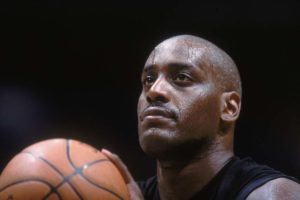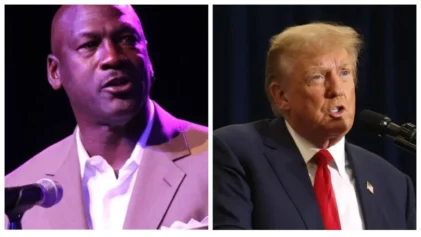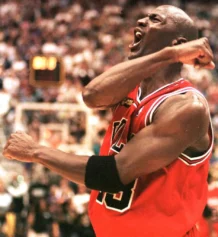
“Mase” never thought anyone could beat him. As the former New York Knick star lies in a hospital bed after a major heart attack and two surgeries, he’s probably mad that such a thing has him on his back.
That sums up Anthony Mason—he refused to give in to circumstances that seemed out of his reach. LeBron James and Kobe Bryant, Michael Jordan and Magic Johnson…they are all inspirations to young Black kids for their talent and achievement.
But if you want the story that is more plausible for Black youth to embrace, one of working hard and overcoming obstacles, fighting your way up—virtues that apply not just to becoming a professional basketball player but becoming successful in life—then Mason’s story is one to clutch and tuck away.
He played at Tennessee State, a big man who could run but did not have much of a shot. It didn’t matter—he had dream. He had will. He had resilience.
And so, Mason, now 48, took his New York grit where he had to take it to make it: Turkey, Venezuela, the CBA, the USBL. After three years of instability, Mason arrived with the Knicks the same time Pat Riley did as coach.
Riley embraced the toughness and determination Mason showed in his game and attitude. He went on to become one of the players who symbolized the might and will of the Knicks of the mid-1990s that advanced to the ’94 NBA Finals.
Mason was one of the city’s favorite sons, the personification of heart.
When he was in his second year with the Knicks, someone asked him about having to face Karl Malone, making an emphasis on the Utah Jazz’s size. Mason flexed his biceps and said, “And? What do you think this is?”
He was petulant and moody, brat-like even, when things did not go his way. Once, during a game, Riley sent Mason to the locker room at Madison Square Garden, and the 6-foot-6 forward knocked over a stanchion on the way. It only would have been a surprise if he had not.
Mason wore a perpetual scowl as he played, a constant reminder that he was not content just making it. His effort was constant and committed, as if taking a play off would send him back to basketball oblivion. If he had 16 points and 14 rebounds, he’d complain that he didn’t play enough. He always pushed for more. Against the hated Chicago Bulls in the ’93 playoffs, Mason sought out Jordan to shove during a multi-player scuffle. That was Mason: He took no shortcuts. (Jordan did not push him back.)
Off the court, Mason was loyal to the friends he knew best, many of them from his old Springfield Gardens, Queens neighborhood. He usually had his name or “New York” or some other message cut out in the side of his head, a whimsical gesture that showed his loose personality.
Mason was remarkable at having a good time at night and playing with the same effort and energy the next day. Indefatigable.
Being an NBA player meant a lot to him and to his family—and he basked in it in his way. He was flashier on the court as a ball handler than he was off of it, where he was playful and funny and once got in trouble for squirting a motorist with an oversized water gun. And he liked, in his a deep, raspy voice, to joke with friends and teammates. And he was funny, clever.
Mason wasn’t “keeping it real;” he was genuine. “Keeping it real” takes an effort; Mason was just himself, all the time, even on occasion at his own peril.
He was so confident after the Riley years, having won the NBA’s 1995 Sixth Man of the Year Award, that he believed the Knicks’ offense should run through him and not Hall of Fame center Patrick Ewing.
“We tried that and it didn’t work,” Mason said, and he was not joking.
He’s now battling harder for his life than he ever did in achieving the life he always wanted. This is not Anthony Mason’s obituary. This is his life. And the prayers are that he has more life to live.


